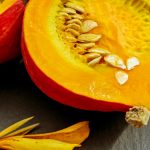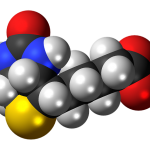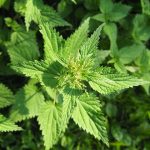Pumpkin seeds seem to be an effective natural remedy for relieving the urinary symptoms of BPH. Pumpkin seeds are the edible seeds of a pumpkin. Known for their nutritional and medicinal qualities, pumpkin seeds have been suggested to help with prostate health by: Alleviating BPH. Pumpkin seeds may help improve symptoms of benign prostatic hyperplasia (BPH) by inhibiting … [Read more...]
Biotin for Skin
Biotin supplementation may benefit the skin in cases of deficiency, but research evidence is lacking and deficiency is rare. Biotin is a B vitamin needed for healthy energy metabolism. It is commonly used in beauty supplements, and has been suggested to help improve skin health by: Restoring biotin deficiency, which can cause dry skin, dermatitis, rashes, and other skin … [Read more...]
Pygeum for Prostate Health
Pygeum tree bark extract appears to alleviate BPH and prostatitis symptoms. Pygeum is a type of tree found in Africa, whose bark has traditionally been used to alleviate urinary and bladder issues. Today, pygeum extracts are popularly used to support prostate health through: Alleviating BPH. Pygeum may help improve the urinary symptoms of benign prostatic hyperplasia … [Read more...]
Stinging Nettle for Prostate Health
Time-tested herb stinging nettle may improve symptoms of BPH. Stinging nettle is a plant used as food and medicine for thousands of years. Today, it's popularly used as a male health supplement, and is known for its potential to alleviate BPH by: Inhibiting 5a-reductase, an enzyme that converts testosterone to dihydrotestosterone (DHT), which plays a central role in BPH. … [Read more...]
Saw Palmetto for Prostate Health
Saw palmetto palm fruit might relieve the urinary symptoms of BPH, but evidence is mixed. Saw palmetto, also known as the American dwarf palm, is a plant known for its medicinal berries. Saw palmetto has been suggested to support prostate health by: Alleviating BPH. Saw palmetto is the most widely used supplement for improving symptoms of benign prostatic hyperplasia … [Read more...]




